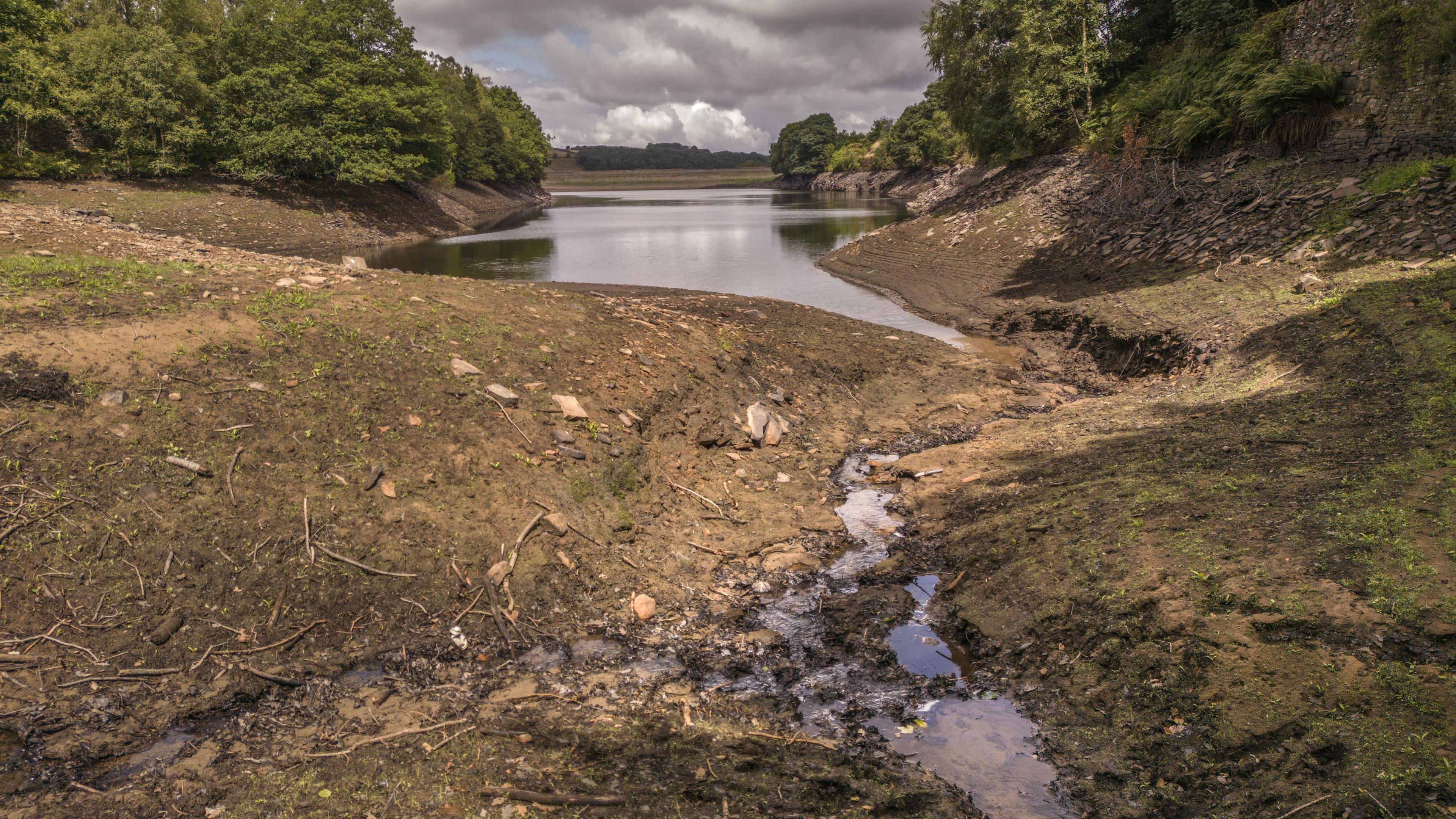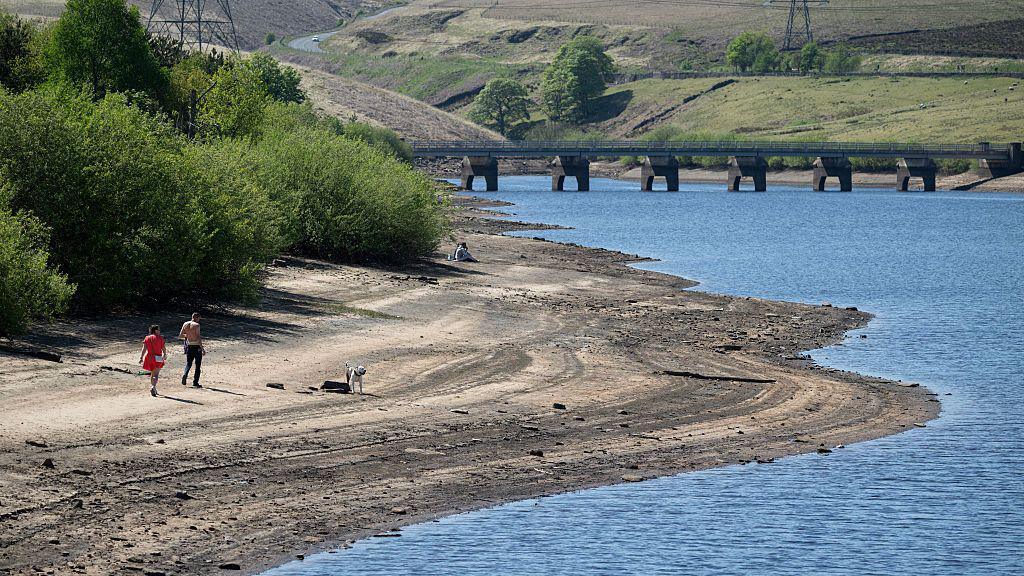Drought 'could reach levels not seen since 1995'

Low water levels at Holme Styes reservoir in Holmfirth
- Published
Water levels at reservoirs in Yorkshire are at a historic August low after the driest week since mid-May, the Environment Agency has said.
The situation has now become one of the "most serious droughts" in recent times, according to its specialist Tom Padgett.
Yorkshire Water reservoirs are at 42.2% capacity, whereas the usual level at this time of year is between 65% and 80%, Mr Padgett added.
He said that conditions were unlikely to improve in the next few weeks.
Mr Padgett continued: "On the long-range forecast, we see a dried and settled period for much of August, which is suggesting we're going to see normal or slightly drier conditions that we'd normally expect for this time of year.
"This is not likely to give us any respite for drought conditions in Yorkshire."
The only occasion water levels at Yorkshire Water sites have been lower was in 1995, but the drought peaked later in the year. The current levels are the lowest ever recorded in August.
One consequence of low reservoir levels has been an increasing number of incidents of fish being in distress.
"We've had to carry out a number of fish rescues already across Yorkshire," Mr Padgett said.
Yorkshire Water has asked for permission to take water from rivers to meet demand.
The company has applied to the Environment Agency for 14 drought permits, which will enable it to save water. This includes 12 permits in its northwest reservoir group, and two for its river abstractions on the River Wharfe.
It has also applied for a drought order for on the River Ouse at York, which will allow Yorkshire Water to put less water into the supply from reservoirs to help conserve water supplies.
If approved, a drought order would apply for up to six months.
Dave Kaye, director of water at Yorkshire Water, said: "We're applying to Defra for a drought order to temporarily draw more water from the River Ouse when conditions allow.
"This step, if approved, will reduce the pressure on our reservoirs and help to extend vital water supplies through summer, as well as enabling recovery into the autumn and winter months.
"It's not a decision we've made lightly, but it is the next essential step to protect water supplies for our customers and to protect the environment after an extremely dry year so far and the declaration of drought in our region."
A hosepipe ban was implemented on 11 July across much of Yorkshire after an extended spell of dry weather. Domestic water usage subsequently dropped by 10%.
Listen to highlights from West Yorkshire on BBC Sounds, catch up with the latest episode of Look North.
Get in touch
Tell us which stories we should cover in Yorkshire
- Published12 June
